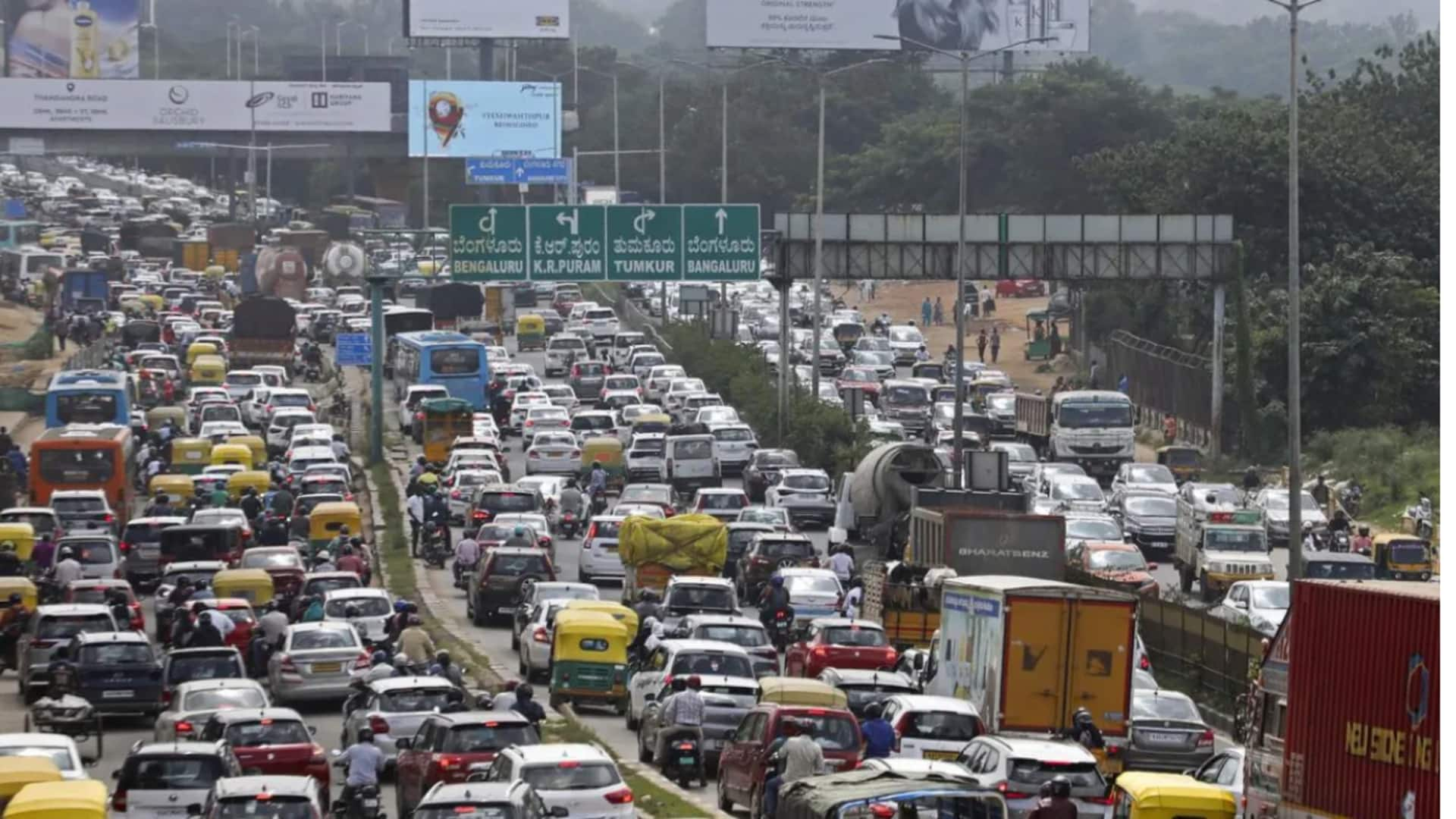
Bengaluru considers air purifiers at busiest junctions amid AQI spike
What's the story
Bengaluru is grappling with rising pollution levels, with the air quality slipping into the "moderate" category and some areas recording a "poor" AQI. To tackle this, the Karnataka State Pollution Control Board (KSPCB) plans to install air purifiers at major city junctions, per TOI. The initiative aims to reduce dust particles in high-traffic areas. The move comes amid a worrying increase in PM2.5 levels, which can lead to respiratory diseases.
Historical context
KSPCB chairman highlights past solutions, seeks permission for new initiative
KSPCB chairman PM Narendraswamy emphasized Bengaluru's past reputation for clean air and recalled earlier solutions like water fountains that absorbed dust. "The city was once known globally for its clean, ambient air," he told TOI. He added, "Those features have disappeared over time, and the consequences are visible in...dust-heavy air we breathe today." He said he has written to the CPCB, seeking permission to install the purifiers. "If approved, we will deploy them at some of the city's busiest junctions."
AQI details
Bengaluru's air quality index and public concerns
On Monday, Bengaluru recorded an AQI of 112, falling in the "moderate" category. However, one station slipped into the "poor" category with an AQI of 215. The Sameer app showed four stations with "satisfactory" air quality, seven in the "moderate" range, and one in the "poor" category. Residents are now comparing Bengaluru's pollution levels to Delhi's and suspect illegal garbage burning as a contributing factor to worsening conditions, according to a report by Hindustan Times.
Trend
Recent trends a cause for alarm
The report further states that the week-long trend reveals a concerning pattern. The city's AQI consistently ranged between 150 and 170, particularly in East Bengaluru, with PM2.5 levels exceeding 50 µg/m³ and PM10 around 77 µg/m³, both significantly above national safe limits. The report also quoted residents asking why only certain parts of the city were choking despite uniform traffic volume.